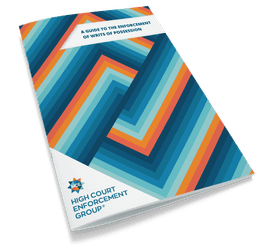Changes to Taking Control of Goods procedure and fees

Following the previous Government’s consultation in 2023 on the Taking Control of Goods (TCoG) regulations, the Minister of State for Justice, Sarah Sackman, has announced the changes that will be made as a result of the consultation and feedback from the enforcement sector.
The Minister of State is clear that an effective enforcement system is essential, to deliver court awards to claimants in a straightforward and timely manner, whilst treating debtors with dignity.
Let us go through the decisions that will be implemented in the coming months, via a statutory instrument. These are:
- Compliance stage
- Enforcement stage 2
- Creditors receiving extra payments
- Time scale for fee reviews
- Enforcement fees
Compliance stage
There is a strong desire to resolve more cases at compliance stage. As a result, creditors will be able to accept payment arrangements during compliance (instead of having to wait for the enforcement stage).
This will be applied to both High Court and non-High Court debts.
The duration of the compliance stage will also be extended from seven clear days to 14 clear days, to allow more time for payment and seeking of advice.
There had been consideration of either a 28-day duration or 14 days for businesses and 28 days for individuals. The former was rejected as causing delay for creditors who had already waited for payment and the latter was rejected as too complex to manage, with challenges around the status of sole traders.
However, if the debtor has sought advice from a debt advice provider and the debt advisor contacts the enforcement firm or agent to request an extension of the compliance period, this will be up to 28 days from the date of the notice of enforcement.
Enforcement stage 2
If there is no contact made on a first visit, the HCEO (High Court Enforcement Officer) will no longer be able to move the case automatically to enforcement stage 2 (ES2).
Where a breach of payment arrangement occurs, there will not be a set time period before progressing to enforcement stage 2 beyond the current two-day notice requirement (which some had proposed), however, the HCEO will need to provide documented warnings and try to amend the payment arrangement to avoid having to make a further visit.
The Government will set out in the new regulations that the enforcement stage 2 fee cannot be recovered when the debtor pays in full or enters a payment arrangement during or following the first contact with the debtor at their address.
The government proposal also says: “We have decided instead to set out in Regulations that the ES2 fee cannot be recovered in cases where the debt is paid in full or an instalment agreement is agreed, during or following the first contact with the debtor at their address. Whilst we understand that there may be concern that this could have an adverse impact on enforcement rates – as agents may not spend as long at a property if they can only recover the ES1 fee - the proposal will not remove the right of an HCEO to move to the sale and disposal stage, if there are sufficient goods at the premises.”
Creditors receiving extra payments
The National Standards will be amended to state that it is “inappropriate for creditors to require extra payments or profit-sharing from the use of EAs and the charging of fees.”
The Government said that the TCoG regulations are not suitable platforms for these provisions.
Time scale for fee reviews
The Government intends to review enforcement fees in three years’ time.
They will also be waiting for the outcome on the consultation on a statutory regulator for the enforcement sector, with one question being whether such a body should play a role in reviewing the fees.
Enforcement fees
Last, but by no means least, enforcement fees will increase by 5% across the board.
We do not know when this will come into effect and it will be the first increase since 2014, so does lag some way behind inflation over the last 11 eleven years, but it will help the enforcement sector, as costs have been increasing.
For the stage where a percentage fee can be recovered, the thresholds will be increased by 24%, so that the threshold for High Court writs will increase from £1,000 to £1,200 and for non-High Court from £1,500 to £1,900.
The percentage fee remains unchanged at 7.5%.
Areas that the ECB will address
The Government has decided not to make changes to the tasks that are covered within the compliance stage or additional information that is sent with the notice of enforcement, as the Enforcement Conduct Board (ECB) is addressing these areas as part of their standards.
Implementation of these changes
These changes will be implemented by a statutory instrument. We are not sure when this will happen, but think it likely that the approval will be made early Autumn, with implementation some time thereafter.



